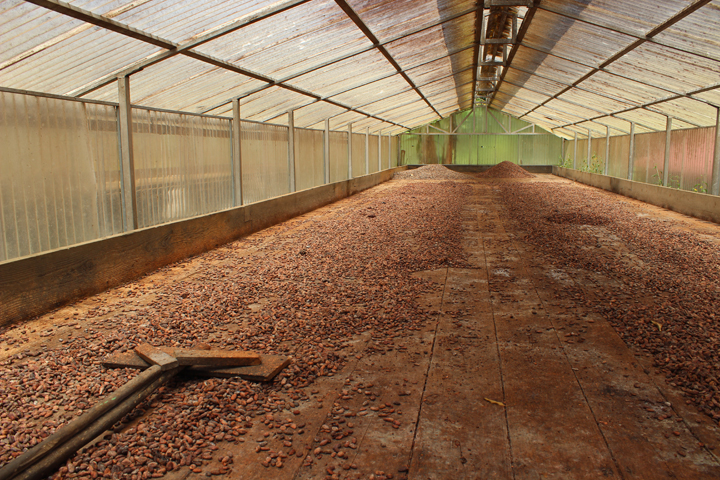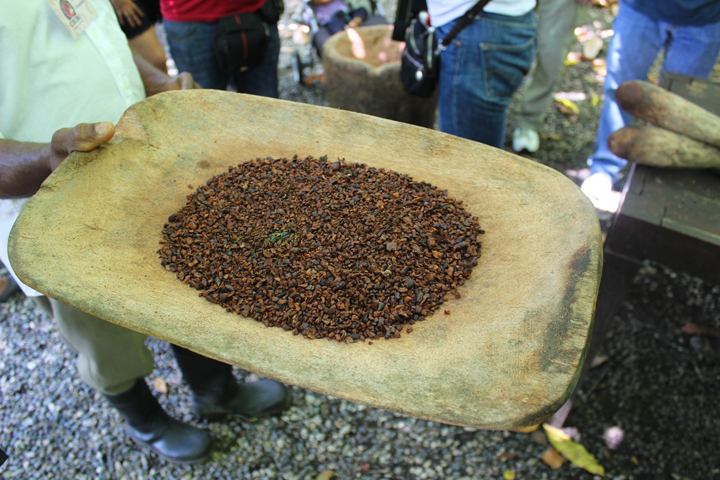We are driving north towards San Francisco de Macoris from the capital, Santo Domingo.
Little vignettes of this third world country blur through my mind as we speed along. I am groggy, blinking away sleep, but curious. I have never been here before.
Three little black kids pump water into big blue plastic jugs from a well, five small boys play baseball alongside the road on a dirt patch, a man rides a horse with rope reins, goats pick through garbage in the ditch, a cow rummages for food in a dumpster, four men sit at a card table playing dominos. Wooden carts selling coconuts, banana bunches, and white eggs dot the roadside. Garbage is scattered everywhere. These scenes register in my brain a few seconds delayed, we are driving so fast. It seems cliché, like something I've seen in National Geographic, but it's real and right before me.
I didn't know much about the Dominican Republic before this trip. What I knew was that it was a Caribbean island physically connected to the poverty of disaster-stricken Haiti. Besides that, I recall my parents having been on a beach vacation here years ago. What I'm discovering now is that this country is stunningly beautiful but it is also very poor.
The clusters of homes we speed past, shacks by American standards, are constructed of weathered wood painted in colorful tropical blues, pinks, yellows. I have the thought that shoppers at Anthropologie would go crazy for a store window constructed with these elements, minus the living inhabitants and garbage strewn about.
Hello!
I want to photograph everything, especially the people. But we are in a van, driving too fast. We'd never make it anywhere if we were to stop for each picture I want to take, so I settle for remembering. Besides, I feel like an outsider, that I don't belong here and that to photograph would in some way objectify the local's lives in a rude or intrusive way. I suppose this is the never ending internal conflict of the traveler, the photographer. I'm certain this feeling will resurface once we set out on the longer leg of our year of travels.
Then we pass a very old man walking roadside next to the sugar cane, carrying a machete and a huge banana bunch. He is so petite, wrinkled, and toothless. He is more than photographable, so we turn back on the narrow road to give it a try. We slow and gesture, asking if we can take a photo. Lighting up, the man walks towards us smiling like he's never been happier in the world.
***
We've been invited to the Dominican Republic to participate in an environmental awareness festival, and so our week is filled with activities and opportunities to meet locals and natives, to see the not too touristy side of things.
Today we are going to see where chocolate comes from, to tour the Esmerelda cacao plantation.
Several hours into our drive, past the mountains and amidst the rice paddies, our driver slows the van, hobbling to the side of the road. We have a flat!
It happens that we stop just next to a small house that doubles as a roadside food stand. We buy bottled water. It's not safe to drink the tap water here. The island drainage system is pretty much nonexistent, so un-purified water has a high risk of contamination.
We ask if there is a restroom and the daughter nods and leads me through a muddy yard, past a chained barking dog, and into her home which is somewhat of a shack. I duck my head since I am too tall for the door frame. Laundry hangs drying inside; it is dim and dingy. The toilet is atop a dirty cement platform and water is dripping everywhere. They have a giant rain barrel set up in an unsuccessful attempt to collect the spray.
I have that feeling that rises up sometimes while traveling when I realize that I'm in a very unlikely place, so vastly different from my own life and all that's familiar and easily taken for granted. I think that if more Americans could see places like this, they would feel empathy, compassion, and understanding for others. If it were easier for us to project ourselves into other people's shoes, maybe we wouldn't be such a me-centric culture. That's the idealist talking in me. Or maybe it's the stupid political presidential campaign that's incessantly running all over American news that I just can't get away from. It feels like our country is pitted against each other, forced to side one team against another when both teams are basically the same thing. On this trip I'm trying to take a news media diet and not dwell on the absurdity of present day America. But I digress.
The point is that not enough people see places of deep poverty like this. I think those who do come to learn more about themselves and as a result, change their own behavior. At least it is my own experience that seeing more of the world has caused me choose to live with more sensitivity and awareness back home.
****
All hands on deck!
Once our tire is finally fixed, what luck, the van fails to start! In the heat and humidity of the afternoon, our driver directs us to all push, hoping that it will click with momentum. The first two attempts are unsuccessful. I can only laugh. We figure it might be better to get the van up on the cement rather than the dirt on the side of the road. Maybe we can get more speed that way. Everyone is pushing, then jogging. And just like that, it roars to life. We pile back inside and continue the drive north.
For some reason we come to a town near the plantation and the driver is suddenly lost. There is a big debate in Spanish that I can barely understand. This may not be the correct direction. I can't help but wonder why this is so complicated; we are on an island and there are only so many roads to follow in the first place.
We eventually do make it to the cacao plantation, hours later. The adventure was well worth it.










